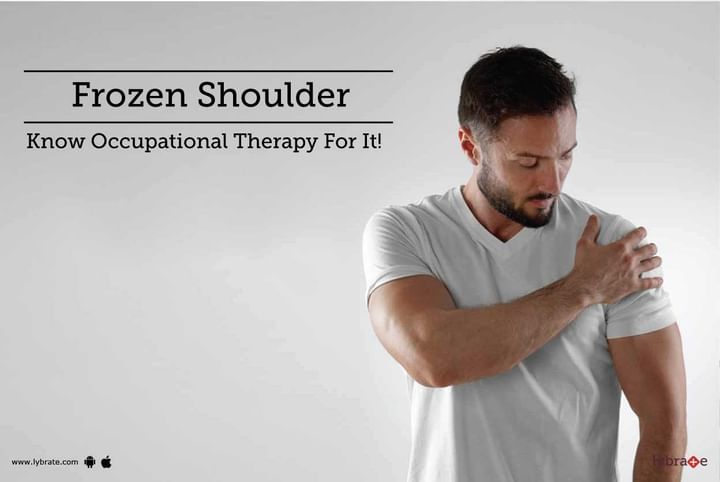Frozen Shoulder - Know Occupational Therapy For It!
Frozen shoulder, which is also known as adhesive capsulitis, refers to a condition that is characterized by stiffness and pain in one’s shoulder joint. The symptoms usually begin in a gradual manner and become worse over a period of time. As far as treatment for this problem is concerned, occupational therapy can be of great help. The therapists make use of different methods of treatment, which include gentle stretching exercises, moist heat, applying ice packs and certain home exercise programs. The treatment methods, which they adopt, are particularly designed to reduce the level of pain and increase one’s movements. Before we talk about the tips on different methods of occupational therapy treatments for frozen shoulder, let us briefly talk about the symptoms of this problem.
Symptoms of Frozen Shoulder
This problem of Frozen Shoulder usually develops in a slow manner and there are three stages. Those include:
- Freezing Stage: During this stage, even a slight movement of one’s shoulder leads to a lot of pain and the range of motion starts becoming very limited.
- Frozen Stage: In this stage, pain may start to get reduced, though the shoulder could get stiffer and thus using it becomes very difficult.
- Thawing Stage: In Thawing Stage, the range of motion in one’s shoulder starts to improve.
Occupational Therapy Treatment for Frozen Shoulder
Occupational therapy treatments form a critical part of one’s recovery and also rehabilitation from this injury. Let us see the tips on exactly how can occupational therapists help treat this problem of frozen shoulder:
- The primary aim of an occupational therapist is to reduce pain and cause an interruption in the cycle of inflammation.
- Now, once that is done, next, the treatments are mainly directed towards getting the muscles to relax. This will help people to regain the motion and that would assist in the functioning of one's shoulder.
- In case, if one’s shoulder pain is too strong to start working on the movement of the shoulder, the Occupational Therapist might start off with treatments, which focus on controlling pain.
- The therapists who make patients undergo the treatment can make use of ultrasound, ice, heat and several other electrical modalities, which could be extremely useful at this particular stage.
- A therapist can also use massages along with little mobilizations, in order to ease out the discomfort caused by muscle spasm and pain.
- These therapists can also help people with a frozen shoulder to stretch their shoulders through the ranges of motion, which are available.
- He or she might also suggest patients do pendular exercises, where they would lean forward, let the arm hang totally clear from the chest and then look to initiate movement with one's trunk so that the dangling limb moves gently and in a passive manner.



+1.svg)
